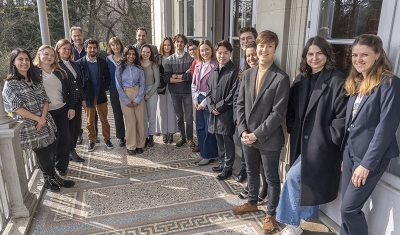Swiss Counter-Terrorism Laws: What are the Legal and Policy Challenges?
Event


Anja
In order to prevent and combat terrorism and violent extremism, a number of European States have adopted far-reaching laws to criminalize participation in or support to terrorist organizations. Some have also adopted administrative measures, such as control orders, with a view to preventing terrorism.
The Swiss Parliament adopted on 25 September 2020 two controversial laws along these lines (see here and here). A number of international lawyers and human rights activists have voiced their concerns in relation to the potential impact of those laws on human rights and humanitarian action notably. Some of these concerns have been taken on board by the Parliament – notably regarding an exemption for humanitarian activities in relation to the criminalization of support to terrorist organizations. Others, such as the vague definition of terrorism or the risk of violating the European Convention on Human Rights in relation to drastic control orders for potential ‘terrorists’ have remained unheeded.
This panel will discuss the legal and policy challenges of the new Swiss laws in light of international law.
Moderation
- Gloria Gaggioli, Director, Geneva Academy and Associate Professor, University of Geneva
Panelists
- Dr iur. Roberta Arnold, Attorney
- Dr Sandra Krähenmann, Thematic Legal Adviser, Geneva Call
- Nils Melzer, Swiss Human Rights Chair, Geneva Academy, Professor of International Law, University of Glasgow and UN Special Rapporteur on Torture and Other Cruel, Inhuman or Degrading Treatment or Punishment
- Ilya Sobol, PhD candidate, University of Geneva, Counter-Terror Pro LegEm project
- Françoise Bouchet-Saulnier, International Legal Director, Doctors without Borders (MSF)
In Geneva and Online
This event will take place both at Villa Moynier in Geneva and online on the platform Zoom.
At Villa Moynier
Those wishing to attend the meeting in Geneva at our headquarters (Villa Moynier) must announce themselves (events[at]geneva-academy.ch). As the capacity of the conference room is limited to 20 participants to respect current regulations regarding social distancing, places will be allocated on a ‘first-come-first-served’ basis. The wearing of a mask inside the premises is required.
Online
To follow the meeting online, register here. After registering, you will receive a confirmation email containing information about joining the webinar.
Video
Swiss Counter-Terrorism Laws: What are the Legal and Policy Challenges?
Panelists discussed the legal and policy challenges of the new Swiss counter-terrorism laws in light of international law, including international human rights law and international humanitarian law.







